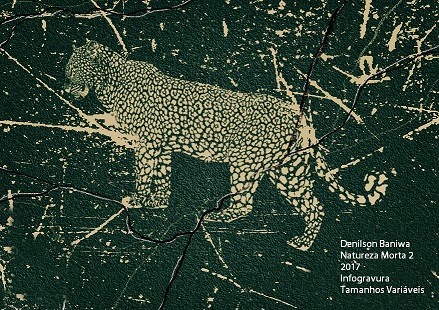“Deconstruction of Ethology” A Reading of Jacques Derrida in the Light of the Ethological Debate
DOI:
https://doi.org/10.54103/2035-7680/16810Parole chiave:
Biodeconstruction; Jacques Derrida; Ethology; Autoimmunity; anthro-pocentrism; anthropomorphism; Carl SafinaAbstract
Derrida developed his most famous reflections on Animality in the Seminars: The Beast & The Sovereign (2001-2003). My hypothesis is that there we can find Derrida’s explicit interest for the ethological debate and its development. Indeed, I will show how deconstruction and ethological science are strictly connected for many reasons. If the historical scientific development of ethological sciences promoted the deconstruction of anthropomorphism (K. Lorenz, 1962), anthropocentrism (D. R. Griffin, 1979) and logocentrism (C. Safina, 2015; A. Neven, 2020), the theory of deconstruction uses these results with the aim to develop new conceptualities over the limits between Animals and Man. Thus, my aim will be to track the conceptual points of connection between Ethology and Deconstruction considering also the recent develops of cognitive and post-cognitive animal studies.
Downloads
Riferimenti bibliografici
Bentham, Jeremy. Of the Limits of the Penal Branch of Jurisprudence. Oxford UP, 1790.
Bennett, Jonathan. Rationality: An essay towards an analysis. Routledge, 1964.
Beck, Benjamin. Animal Tool Behavior. Garland STPM Press, 1980.
Braidotti, Rosy. The Posthuman. Polity Press, 2013.
Burghardt, Gordon. “Critical anthropomorphism, uncritical anthropocentrism, and naïve nominalism.” Comparative Cognition & Behavior Reviews, vol. 2, 2006, pp. 136-138.
Calarco, Matthew. Zoographies: The Question of the Animal from Heidegger to Derrida. Stanford UP, 2007.
Catena, Maria Teresa. Artefatti. Dal Postumano all'Umanologia. Mimesis, 2012.
Derrida, Jacques. The Animal That Therefore I Am. Edited by Marie-Louis Mallet. Translated by D. Wills, Fordham UP, 2008 – in the text (ATIM).
---. The Beast & the Sovereign. Volume I (2001-2002). Translated by G. Bennington, University of Chicago, 2009 – in the text (B&S I).
---. The Beast & the Sovereign. Volume II (2002-2003). Edited by G. Bennington & P. Kamuf, University of Chicago, 2011 – in the text (B&S II).
---. “To Speculate - on Freud.” The Post Card: From Socrates to Freud and Beyond. Translated by A. Bass. U of Chicago,1987, pp. 285-319.
---. Of Spirit. Heidegger and the Question. Translated by G. Bennington and R. Bowlby, Chicago UP, 2017.
---, et al. Psyche: Inventions of the Other; Volume I. Edited by P. Kamuf and E. Rottenberg, Stanford UP, 2007.
---. Force de loi. Galilée,1994.
---. Marges de la philosophie. Éditions de Minuit, 1972.
---. L'écriture et la différence. Seuil, 1967.
---. De la Grammatologie. Éditions de Minuit, 1966.
---. La Vie la Mort: Séminaire (1975-1976). Seuil. 2019.
Derrida, Jacques and Roudinesco, Elisabeth. For What Tomorrow: A Dialogue. Translated by Jeff Fort, Stanford UP, 2004.
Ferraris, Maurizio. Introduction to new realism. Bloomsbury, 2014.
Freud, Sigmund. Beyond the Pleasure Principle. 1920, Cambridge UP, 2016.
Von Frisch, Karl. Bees: Their vision, chemical senses, and language. Cornell UP, 1950.
---. The dance language and orientation of bees. Harvard UP, 1967.
Gallup, Gordon. “Chimpanzees: Self-Recognition.” Science, vol. 167, no. 3914, 1970, pp. 86-87.
Griffin, Donald. The Question of Animal Awareness. The Rockefeller UP, 1979.
Haraway, Donna. Cyborg Manifesto. Routledge, 1991.
Heidegger, Martin. Sein und Zeit. De Gruyter, 2005
Hobbes, Thomas. Leviathan. Oxford UP, 2008.
Lorenz, Konrad. The Foundation of Ethology. Springer-Verlag,1978
---. Studies in animal and human behaviour, vol. 2. Harvard UP, 1971.
Mazzarella, Eugenio. L’uomo che deve rimanere. La smoralizzazione del mondo. Quodlibet, 2017.
Morgan, Conwy Lloyd. An Introduction to Comparative Psychology. Scott, 1894.
Nagel, Thomas. “What Is It Like to Be a Bat?” The Philosophical Review, vol. 83, no. 4, October 1974, pp. 435-450.
Proust, Joelle. Comment l'esprit vient aux bêtes; Essai sur la répresentation. Gallimard, 1997.
Russo, Nicola. L'ipotesi ontologica I. Dell'Essere. Cronopio, 2017.
Vitale, Francesco, Biodeconstrucion. Jacques Derrida and the Life Sciences. Translated by Mauro Senatore, State U of New Work P, 2018.
---. La logique illogique de l'auto-immunité: Derrida entre biologie et déconstruction. In Jacques Derrida. La philosophie hors de ses gonds. Editions T. E. R, pp. 95-112, 2017. In the text (Vitale Autoimmunity).
De Waal, Frans. Chimpanzee Politics: Power and Sex among Apes. Jonathan Cape, 1982.
Wills, David. Dorsality. Thinking Back through Technology and Politics. Minnesota UP, 2008.
---. Inanimation. Theories of Inorganic Life. Minnesota UP, 2016.
Wolf, Carol. What is Posthumanism. Minnesota UP, 2010
Wynne, Clive. “What are animals? Why anthropomorphism is still not a scientific approach to behavior.” Comparative Cognition & Behavior Reviews, vol. 2, no. 1, 2007, pp.125-135.
Robinson, Michael. “The Evolution of Cryptic Postures in Insects, With Special Reference to Some New Guinea Tettigoniids.” Psyche: A Journal of Entomology, vol. 80, no. 3, 1973.
Safina, Carl. Beyond the Words. What Animals think and feel. Handry Holt and Company, 2018.
Dowloads
Pubblicato
Come citare
Fascicolo
Sezione
Licenza

Questo articolo è soggetto a licenza Creative Commons Attribution-NonCommercial-NoDerivatives 3.0 International License.




